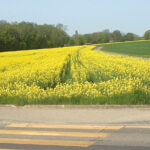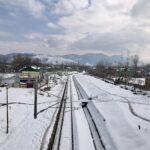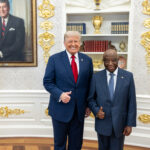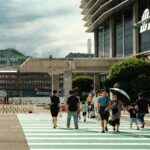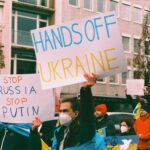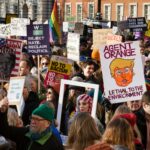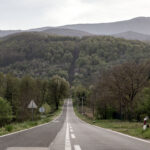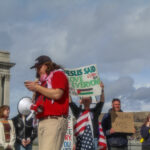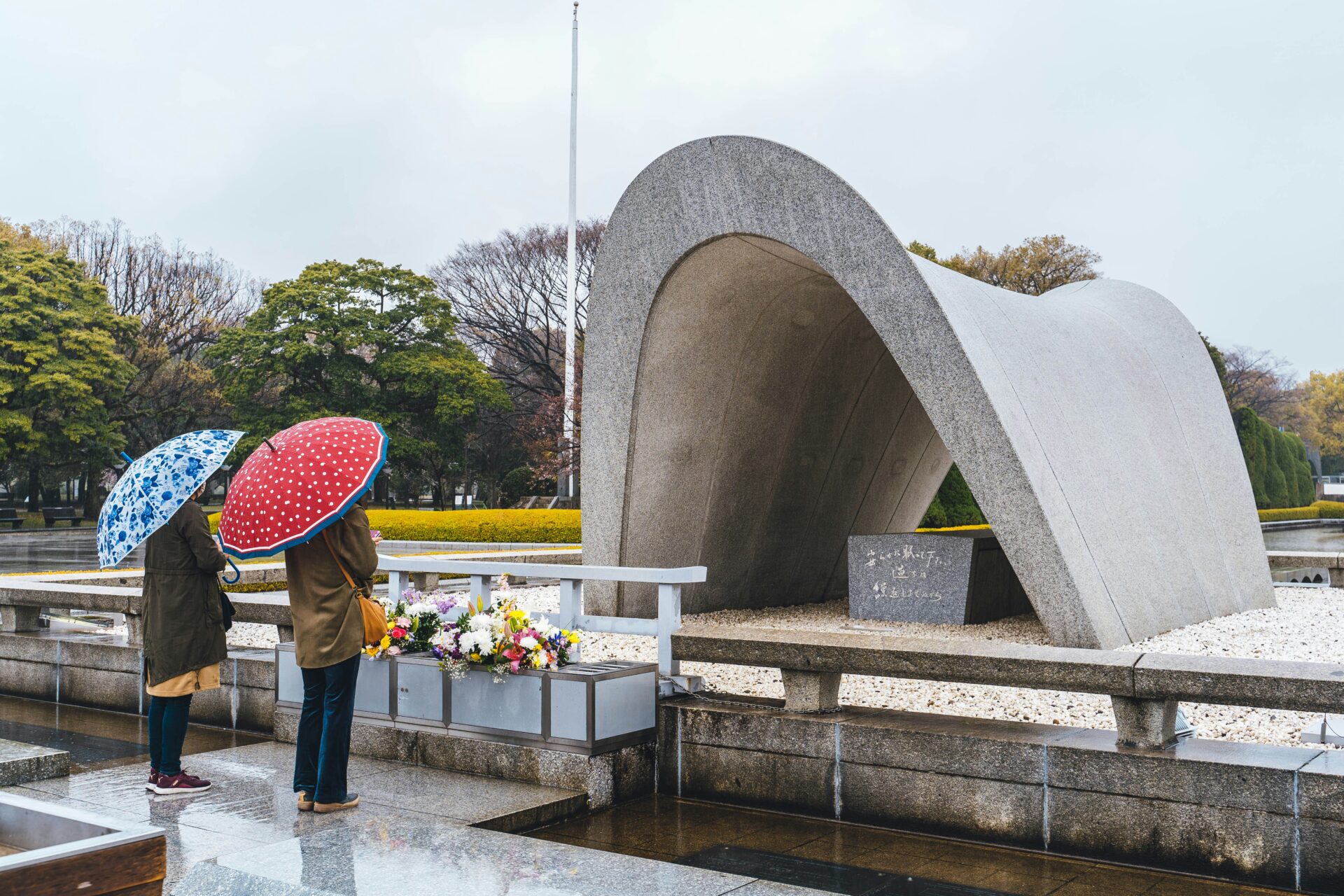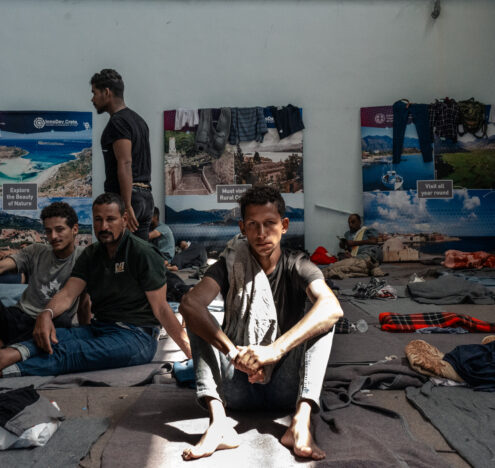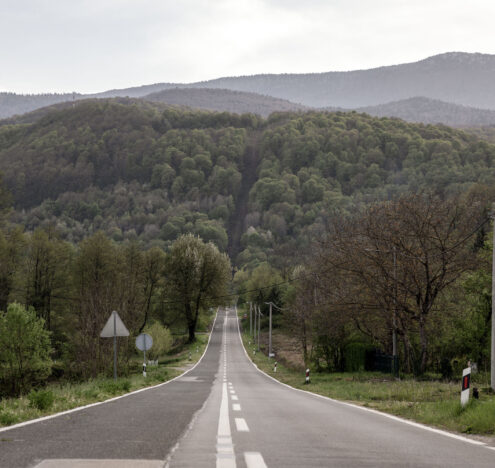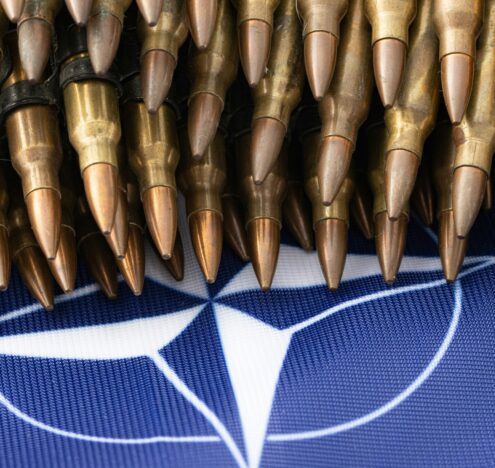Last week the Norwegian Nobel Committee announced the 2024 Nobel Peace Prize had been awarded to Nihon Hidankyo, Japan’s only national organization of atomic bomb survivors, for “its efforts to achieve a world free of nuclear weapons and for demonstrating through witness testimony that nuclear weapons must never be used again.”
For Nihon Hidankyo’s co-chair, Toshiyuki Mimaki, to be recognized nearly 70 years after the organization was formed appeared to come as a shock. Seated before reporters, Mimaki’s eyes welled with tears as he pinched himself in disbelief.
“How did Nihon Hidankyo? It can’t be real,” he said. Thunderstruck, Mimaki vowed his group would continue to appeal for the abolition of nuclear weapons and for an everlasting peace. Mimaki said that he was certain this year’s peace prize would be awarded to those working to alleviate suffering in Gaza, which he compared to Japan after the atomic bombings.
Dwindling Number of Survivors
In its 1956 founding proclamation, Nihon Hidankyo stated, “Humanity must never again inflict nor suffer the sacrifice and torture we have experienced … the world situation today seems as if it has plunged into an age of Hydrogen Bombs race, and H-bomb experiments are carried on in cold blood.”
The proclamation continued, “We are determined not to hold our tongues anymore, whatever force and authority we have to challenge.”
That same year, the United States conducted 17 nuclear and thermonuclear tests at Enewetak and Bikini Atolls in the Marshall Islands.
In Japan, survivors of the nuclear attacks are called hibakusha. The term literally means “bomb-affected people” and has, over time, come to refer to others impacted by nuclear weapons or radiation around the world.
Humanity must never again inflict nor suffer the sacrifice and torture we have experienced.
According to Japan’s Ministry of Health, Labor and Welfare, today there are more than 106,000 hibakusha in Japan. Survivors of the bombings of Hiroshima and Nagasaki’s average age is now nearly 86. This year’s Nobel Peace Prize shines a spotlight on the dwindling number of people who can speak with firsthand knowledge of what it’s like to experience a nuclear bomb.
For nearly seven decades, Nihon Hidankyo and other hibakusha have offered sober warnings of the unparalleled dangers posed by nuclear weapons. Despite the initial downplaying and censoring the effects of radiation and social stigma imposed by their fellow citizens, hibakusha have offered unflinching testimony, undeterred by criticism, dismissal, and disinterest.
Global Harm
The legacy of nuclear weapons that began with the Trinity test in 1945, followed three weeks later by the atomic bombing of Hiroshima and Nagasaki, continued with more than 2,000 nuclear tests that have affected people around the world.
Melissa Parke, executive director of the International Campaign to Abolish Nuclear Weapons (ICAN), congratulated Nihon Hidankyo, saying in a statement, “It is particularly significant that this award comes at this time when the risk that nuclear weapons will be used again is as high, if not higher, as it has ever been.”
ICAN, which itself received the Nobel Peace Prize in 2017, works in cooperation with Nihon Hidankyo, and was instrumental in achieving the UN adoption of the Treaty on the Prohibition of Nuclear Weapons (TPNW), which entered into force in 2021.
In September, Indonesia, Sierra Leone, and the Solomon Islands became the latest countries to ratify the nuclear weapons ban treaty which now has 73 states parties and 94 signatories.
Akira Kawasaki, an ICAN affiliate and co-chair of Japan NGO Network for Nuclear Weapons Abolition, said it was imperative that hibakusha’s voices are heard today.
Kawasaki noted that while in their early years of activism, most hibakusha had little connection to other nuclear affected communities, in recent decades international solidarity has grown with Japanese survivors living outside Japan and with nuclear testing victims in other countries. This solidarity, he said, was influenced by the adoption of the nuclear ban treaty.
And while Kawasaki says the world’s nine nuclear-armed nations (and nearly 30 nuclear endorsing nations) have looked away from TPNW, he hopes they will consider the message of hibakusha and the Nobel Committee with great seriousness. In a statement Kawasaki warned that the experience of the atomic bombings is “becoming a faded memory” at a time when politicians speak of strengthening nuclear deterrence and nuclear sharing.
No Longer Taboo
Shortly after becoming Japan’s new prime minister in early October, Shigeru Ishiba, made headlines by suggesting the possibility of introducing US nuclear weapons to the region as deterrence against North Korea, China, and Russia. In an opinion piece for the Hudson Institute published just before he became prime minister, Ishiba wrote: “The Asian version of NATO must also specifically consider America’s sharing of nuclear weapons or the introduction of nuclear weapons into the region.”
Just days after the Nobel Peace Prize announcement, however, Ishiba appeared open to “seriously considering” a proposal from a coalition party for Japan to act as an observer in a future meeting of states parties to the nuclear ban treaty. Doing so would mark a significant break from Japan’s prior refusal to engage with the treaty.
Michiru Nishida, deputy director at the Research Center for Global Risk at Nagasaki University, says the peace prize is not only a tremendous boost for hibakusha, but it also makes the history and efforts of Nihon Hidankyo more widely known to the Japanese public.
He added that discussion of Japanese nuclear possession and sharing is no longer taboo as a result of the worsening security environment and a rightward tilt in Japanese society. Support for nuclear sharing is still a minority, but definitely growing, Nishida wrote in an email, adding that any introduction of a nuclear weapon to Japan would violate Japan’s long-standing three principles theory that forbids possession, production, or introduction of nuclear weapons to Japan.
“Call to Action”
In a press release, Daryl Kimball, executive director of the Arms Control Association (ACA), said this year’s Nobel Peace Prize was well-deserved recognition for Nihon Hidankyo, but also a “call to action for the leaders of the world’s nuclear-armed states and nonnuclear weapon states to implement concrete steps to refrain from nuclear threats, avert dangerous and destabilizing nuclear competition, and to return to the negotiating table to conclude effective risk reduction and disarmament measures.”
Shizuka Kuramitsu, an ACA research assistant, said in an email that without the tireless work of hibakusha and other activists, the memory of the atomic bombings could be easily forgotten. “Without an understanding of these consequences, politicians tend to under-estimate the effects of nuclear weapons.” As a native of Hiroshima, Kuramitsu hoped the prize would encourage all in Japan to build positive momentum towards disarmament.
Nuclear disarmament, she said, should not be treated as a “utopian ideal,” nor are geopolitical tensions an excuse to develop, test, produce, acquire, possess, stockpile, use, or threaten to use nuclear weapons or to delay meeting disarmament obligations under Article 6 of the Nuclear Non-proliferation Treaty.
Robert Jacobs, a professor of history at the Hiroshima Peace Institute, said that the Nobel Peace Prize will help extend memory culture of what hibakusha endured but says many felt the recognition was wrongly delayed, coming well after an age when the now elderly hibakusha could have more actively leveraged the international attention and funding.
Jacobs says the hibakusha’s efforts have inspired nuclear-affected communities around the world who don’t have the same recognition and support. Through his work, Jacobs has hosted global hibakusha from Kazakhstan, Algeria, the Marshall Islands, south Australia, uranium mining communities in the US and Canada, and Indigenous downwinders from Nevada and Hanford, Washington, and atomic veterans from the US and UK. who continue to struggle for recognition of their own plight.
“Painful Legacy”
Speaking from the Marshall Islands, Ariana Tibon-Kilma, chairperson of the Republic of the Marshall Islands National Nuclear Commission, wrote in an email that Nihon Hidankyo’s leadership and advocacy has “brought global attention to the plight of all who share the painful legacy of nuclear weapons.”
Tibon-Kilma expressed solidarity with Japan’s hibakusha and acknowledged Marshallese hibakusha who have led a global conversation on the devastating harm of nuclear testing while advocating for justice, accountability, and freedom from nuclear threats.
Tibon-Kilma says that addressing the unresolved nuclear legacy remains a priority for the Marshall Islands government and society. In early October, the RMI was elected to serve on the UN Human Rights Council where it passed the renewal of a resolution seeking technical assistance and capacity building to address the ongoing impacts of nuclear testing.
Tibon-Kilma pointed to the disconnect between global recognition of the pursuit of nuclear abolition and the ongoing modernization and expansion of nuclear arsenals. Last year, the world’s nine nuclear-armed nations spent more than $91 billion on nuclear weapons, $10.7 billion more than 2022.
“Reconciliation requires a collective commitment to dialogue, diplomacy, and concerted international efforts to hold nuclear states accountable,” she said, adding that it is essential to ensure “the voices of survivors and advocates are at the forefront of this vital conversation.”
Cavalier Threats to Use Nuclear Weapons
Benetick Kabua Maddison, executive director and CEO of the Arkansas-based Marshallese Educational Initiative, praised Nihon Hidankyo for decades of tireless efforts to raise awareness and engage with people from all walks of life.
When the US conducted 67 nuclear weapons tests in the Marshall Islands between 1946 and 1958, Kabua Maddison says, it was the Japanese who brought attention to the damage wrought, with Japanese doctors and scientists warning the world about radiation and environmental contamination.
Nihon Hidankyo and hibakusha have inspired members of nuclear frontline communities, like myself, to tell our stories and advocate for nonproliferation.
“Nihon Hidankyo and hibakusha have inspired members of nuclear frontline communities, like myself, to tell our stories and advocate for nonproliferation,” Kabua Maddison said in an email. He says that true nuclear justice remains elusive, and the US government hasn’t taken full responsibility for its nuclear legacy in the Marshall Islands.
At a time when global arms control treaties have expired or been abandoned, politicians in nuclear-armed states have grown comfortable with making cavalier threats to use nuclear weapons and as their role grows, the decades old taboo against their use is under increasing pressure.
Number of Deployed Nuclear Weapons Rising
In a press release, Dan Smith, director of the Stockholm International Peace Research Institute (SIPRI) said that hibakusha and Nihon Hidankyo play a crucial role in maintaining the nuclear taboo. He noted that although the total number of nuclear weapons has fallen since the end of the Cold War, the number of deployed nuclear weapons is rising.
In SIPRI’s Yearbook 2024, researchers presented a comprehensive report of the world’s nuclear forces and delivery systems. SIPRI estimated that in January 2024, of the estimated 12,121 nuclear warheads in the total global inventory, more than 9,500 were kept in military stockpiles with just over 3,900 deployed with missiles and aircraft. That number has grown by 60 from a year earlier.
Just three days after the chair of the Norwegian Nobel Committee described the “nuclear taboo” as a “powerful international norm … stigmatizing the use of nuclear weapons as morally unacceptable,” NATO began its annual two-week long multi-nation nuclear exercise in northern Europe. Russia, which has issued multiple nuclear threats, deployed nuclear weapons to Belarus, and lowered its threshold for nuclear use since its full-scale invasion of Ukraine, accused NATO of fueling tensions.
The leaders of nuclear-armed states, it seems, are unmoved and indifferent to decades of firsthand testimony provided by Nihon Hidankyo and other hibakusha as the pain and suffering caused by nuclear weapons continues. The sharp contrast between celebrating the courage and conviction of nuclear survivors and the stubborn commitment to maintaining and expanding nuclear weapons by a minority of countries raises a question. We know that we all live under the threat of a weapon too terrible to use, one which could suddenly and unexpectedly write the unforgivingly painful final chapter of human history. Nihon Hidankyo and the hibakusha have told us what we must do, but do we have the selflessness and the wisdom to listen?
Top photo: A pair of individuals pray in front of a monument at the Peace Memorial Park in Hiroshima, on March 30, 2022 (Roméo A./Unsplash)


